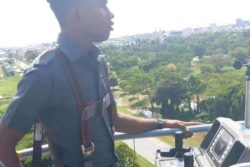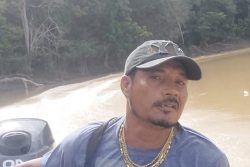Dear Editor,
Mr. Shridath Ramphal, I deliberately dropped the title the British offered him in his early life, was a distinguished son of the soil. I want to relate artifacts and memories that will give the younger generation some indication from his point of view of the personality and aspirations of Mr. Shridath Ramphal. His father Mr. JI Ramphal was a prominent citizen who became Commissioner of Labour, probably the first Guyana born person to head a government department. While in the labour department he came to our Buxton discussion ‘Circle’ on Friday nights to conduct a course in trade unionism based on a set of booklets printed by the British Trade Union Congress. JI Ramphal was also the founder of Modern High School in Georgetown.
I first encountered Shridath Ramphal in 1959 when Mr. CLR James and his wife invited me to Trinidad and Tobago to spend a week with them as their guest. Mr. James had just returned from Guyana, where he had been covering cricket and giving lectures. I met Mr. Ramphal in his office, where he was serving as the assistant attorney general of the newly formed West Indies Federation. Even then, he was a rising star. Our conversation on that occasion was brief, but memorable.
Mr. Ramphal then became Attorney General and took on other functions in the Guyana coalition government led by Mr. Burnham after the 1964 hostilities. All this was when I publicly supported the coalition government led by Mr. Burnham. So, I saw Mr. Ramphal from time to time at the Prime Minister’s office. I was a schoolteacher at a high school in Buxton I founded and was quite satisfied with that status. I had gone to Africa to explain the political situation in Guyana as Mr. Burnham’s envoy, and I had nothing but a letter from him. I had been facilitated passage through the United States because of Ramphal’s new status. I had not been able to transit through the United States before because of the Anglo-US policies in 1953. I was in New York a few days before the Christmas holidays, and Dr. Neddy Peters of New Amsterdam arranged for me to address representatives of the African Nations in a room at the United Nations. I gave them my interpretation of the political situation in Guyana, the need to introduce Proportional Representation (PR), a change to which they had been opposed.
So, I had some idea of the diplomatic content of several African countries and shared these freely with people who had reason to enquire. The next thing I want to mention is that, for his reasons, Mr. Burnham, the Prime Minister, invited me to the Guyana delegation at the Non-Aligned Conference in Lusaka. It was not something I expected or looked forward to. I complied, hoping I would be helpful as a loyal citizen of Guyana. At that season, everybody knew him and called him ‘Sonny’ Ramphal: that was his name, and of course, it pleased the strata of people with whom he interacted because they were very comfortable with Anglophone names. When we got together on the delegation, it was an exciting time as we moved from place to place across the African continent after the Non-Aligned Conference. The Prime Minister had decided to visit several African countries, so a few small planes were hired to transport us between locations. It was a close-knit experience as we sat together on those flights, sharing the journey and the conversations along the way.
And I remember one day, someone called me by my old name, and I reminded them that I had taken the trouble to change my name, and then I suggested to Mr. Ramphal that he should stop people from calling him ‘Sonny’ after his parents had given him an honourable name. He took the point, made a statement about it, and asked them to call him Shridath. That is one incident I will mention. It did him well because it was more appropriate for the non-European climate in which he was active, although several African statesmen had European first names.
Before we left Guyana to be active on the international front, his career, which was so well described by others, including the current opposition leader of Guyana, Mr. Ramphal, was interviewed by Hugh Cholmondeley, a star reporter for the Guyana Broadcasting Corporation radio. It was a fascinating interview. I listened to it at home and remember Mr. Cholmondeley questioning him. He was frank. I will not attempt to recall the contents of the interview, but I say Mr. Ramphal was a man who knew where he was going. He moved along a career path carefully chosen by him. Evidence was that the background music for this exciting interview with Mr. Hugh Cholmondeley was a popular song with the refrain, “I did it my way.” I got the impression that Mr. Ramphal was telling us that he did what he wanted to do in a way he wanted to. As far as I observed, he always maintained his freedom of action, which is his story. I feel that the NCN, regardless of the politics of today, can do the present population service and serve public education well by making this interview freely and publicly available by means available to it. I regret my delay in writing this letter.
Sincerely,
Eusi Kwayana







